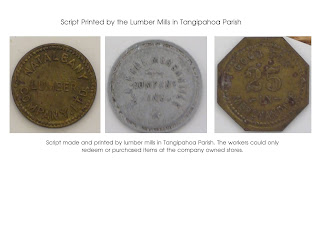 |
Star Hill C.M.E Church
Amite County, Mississippi
Photo Credit: Dr. Antoinette Harrell |
For twenty years Crawford Allen's story sat on Dr. Antoinette Harrell's desk. Crawford Allen, his wife and three children were kidnapped from Amite County, Mississippi and sold to a farm in Fluker, Louisiana in 1926. President Abraham Lincoln issued the Emancipation Proclamation on January 1, 1863. The proclamation declared" that all person held as slaves" with the rebellious states "are, and hencefoward shall be free.
Peonage researcher, Dr. Antoinette Harrell, conducted peonage for decades at the National Archives in Washington, D.C. The Crawford Allen story was one of the stories she uncovered during her visit. Harrell discovered a 1926 newspaper clipping published by the Associated Press regarding Allen's and his family being sold for $20.00. Yes, a family of five sold for $20.00, after slavery was abolished seventy plus years. "How could this happened? Who sold them? Whatever happened to the Allen's who kidnapped and sold them?"
Louis was named after his paternal grandfather, Louis Allen, who was assassinated in 1964 after witnessing Hebert Lee's murdered at a cotton gin in Liberty, Mississippi. "I was the first male child born and my parents named me after my grandfather." said Ali. My grandmother passed the oral history down to me about my grandfather. She always talked about what happened to her husband and my grandfather. Louis father Henry "Hank" Allen said that his father Louis told him, that papa was a slave. He never mentioned that he was sold as a slave as well.
 |
Dr. Antoinette Harrell
Gravesite of Crawford Allen |
When Harrell delivered the news to the Allen family, it was so shocking to them. They had no ideal that Louis was one fo the three children who was kidnapped and sold. The Allen family needed a few moments to process what was being told to them by peonage detective Dr. Antoinette Harrell. There were no easy methods for Harrell to inform the family that their father, grandfather, and great grandfather was one of the three children in the house when the kidnapping occurred.
Ali contacted Dr. Harrell and requested that she accompany him to the Amite County Clerk of Court in order to conduct genealogical research his family history. The opportunity to guide Ali to learn more about his family history was too appealing for Harrell to turn down. When they arrived at the Clerk's office the first records Harrell directed Ali to was marriage records. Ali was so excited to find his grandparents, great-grandparents, uncles and aunts marriage records. In addition to marriage records, Harrell wanted Ali to examine records relating to conveyances and succession. With the aid of Harrell's magnification glasses, Harrell helped Ali to locate a number of land records and succession records relating to the Allen family.
In the Clerk of Court office, they exerted all their efforts and energy researching records. Harrell requested that Ali take her to the gravesite of his great grandfather Crawford and his grandfather Louis Allen. It was the first time Harrell had visited the gravesite of Crawford Allen, his son Louis Allen, his wife Anna, and his daughters who was also sold.
As Ali led Harrell to the location where his grandfather Louis Allen was murdered, Harrell had to compose herself emotionally. Harrell couldn't believe that after waiting patiently for the story development for twenty years, she was finally able to speak with the Allen family and to go back to the site were the terrible events occurred.
 |
Louis Allen
Researching his Allen family history
Amite County, Mississippi
Photo Credit
Dr. Antoinette Harrell |







